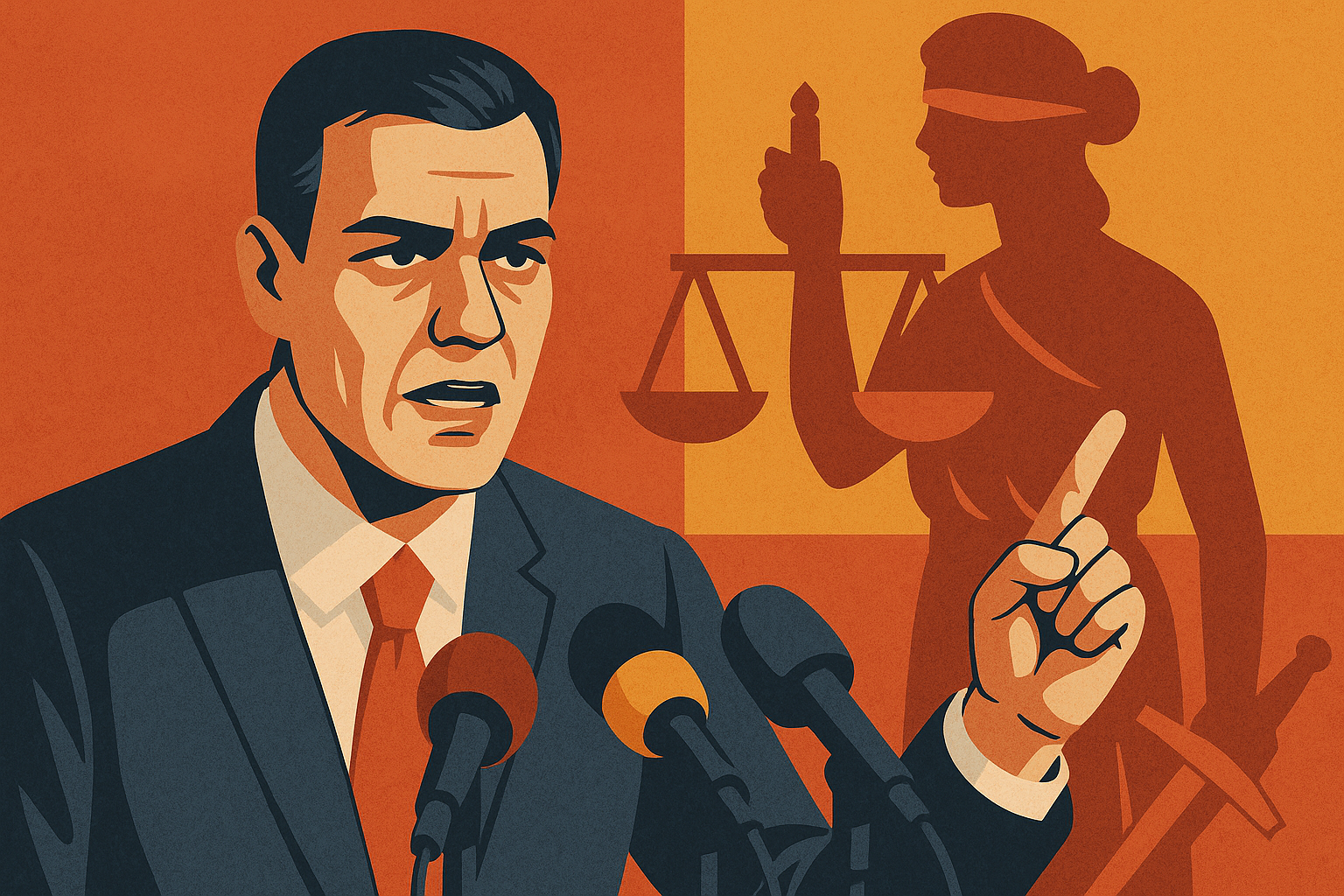Spain’s Prime Minister Pedro Sánchez has sharply criticised elements of the judiciary, accusing some judges of engaging in politics as investigations into alleged corruption involving his wife continue.
Allegations Against Family Members
Sánchez’s wife, Begoña Gómez, is under judicial investigation after a complaint filed by a group with far-right links. Last month, judge Juan Carlos Peinado expanded the probe, alleging Gómez misused public funds by assigning her state-paid assistant to personal tasks. She also faces scrutiny over alleged influence peddling, charges she firmly denies.
The controversy has widened to include Sánchez’s brother, David Sánchez, who is being investigated over a provincial government role linked to music projects. He too denies wrongdoing.
“These cases come from false accusations, from press clippings, from far-right organisations that appear before certain courts to open a case,” Sánchez said in an interview with state broadcaster TVE. He condemned what he described as “trial by television news,” insisting his relatives were “paying a price merely because they are my family.”
Opposition Response
The leader of the conservative People’s Party (PP), Alberto Núñez Feijóo, accused Sánchez of trying to undermine the judiciary. In a post on X, he warned that the prime minister’s remarks posed “a danger to Spain.”
Sánchez countered that while most judges act impartially, “there are undoubtedly judges engaging in politics, and politicians trying to administer justice. They are the minority, but they exist and they cause terrible harm to the judicial system.”
Broader Corruption Allegations
The prime minister’s credibility has also been tested by corruption cases involving two former close allies:
- Santos Cerdán, held in pre-trial detention.
- José Luis Ábalos, a former minister.
Both deny wrongdoing. Sánchez said he responded firmly by dismissing them from their Socialist party roles, stressing that the courts must determine their cases.
Government Paralysis Debate
Sánchez’s minority leftwing coalition depends on support from a fragmented bloc of parliamentary allies. Since starting his current term in late 2023, he has repeatedly failed to pass a new budget, relying instead on the 2023 plan carried over from his previous mandate.
While pledging to present a 2026 budget before year-end, Sánchez downplayed its importance, insisting his government could still meet its goals of job creation and reducing inequality without it.
Opposition parties have demanded fresh elections, accusing the government of paralysis. Sánchez rejected the call, arguing that forcing Spaniards to the polls would squander the country’s opportunity to invest EU funds and push through economic reforms.
“Budgets are an instrument, not an end in themselves,” he said.
Economic Context
Despite political turbulence, Spain was the fastest-growing major advanced economy in 2024 and is on track to remain a frontrunner in 2025. Sánchez emphasised this growth as evidence that his government continues to deliver results, even amid judicial and parliamentary challenges.








